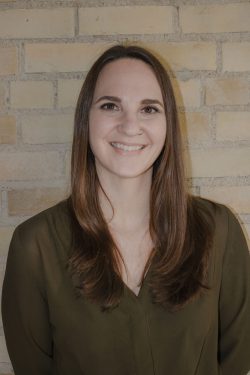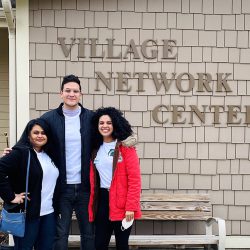At Michigan State University, Pride Month is honored in April, as this gives the community the chance to celebrate together before embarking on summer break adventures (for the world at large, Pride Month is celebrated in June). In recognition of the monthlong event, the College of Veterinary Medicine spoke with a member of our community about how to make the veterinary field more inclusive to LGBTQIA+ individuals.
Dr. Leanne Magestro, Assistant Professor of Veterinary Radiation Oncology in the Department of Small Animal Clinical Sciences

About: Leanne Magestro (she/her) is a radiation oncologist as well as communication and clinical reasoning educator at the MSU College of Veterinary Medicine. She completed her veterinary and post-doctoral training in North Carolina and relocated back to the Midwest four years ago, closer to her hometown and family. Her primary responsibility as faculty at MSU is to care for animals and their humans as they navigate cancer diagnosis and treatment. Leanne met her wife, who is also a member of the greater MSU family in the College of Agriculture and Natural Resources, during her first semester of veterinary school. They have now been married for seven years and have a growing family of pets.
How can the veterinary community be more inclusive of non-binary and LGBTQIA+ individuals?
“Meeting people in the LGBTQIA+ community can be confusing for a lot of people at first. Our brains naturally seek order and pattern, so when we see a person who isn’t in what appears to be a traditional relationship or has some gender ambiguity, there can be a feeling of discomfort. Welcome that feeling and think about what it means to you. It will help you realize that placing people in categories or ‘needing’ to assign a gender is a gut reaction and not a true need.
We welcome productive questions about our partners and our families. Don’t be afraid to make a mistake—you may accidentally use the wrong pronouns but if you acknowledge the error, it will be quickly forgotten! Respect those who have changed their preferred names. Use those names and pronouns readily; the more comfortable our allies are, the more exposure our clients and the public will receive. It has taken many of us years—sometimes decades—to understand and accept ourselves and that takes work. We don’t expect people to know everything right away.”



